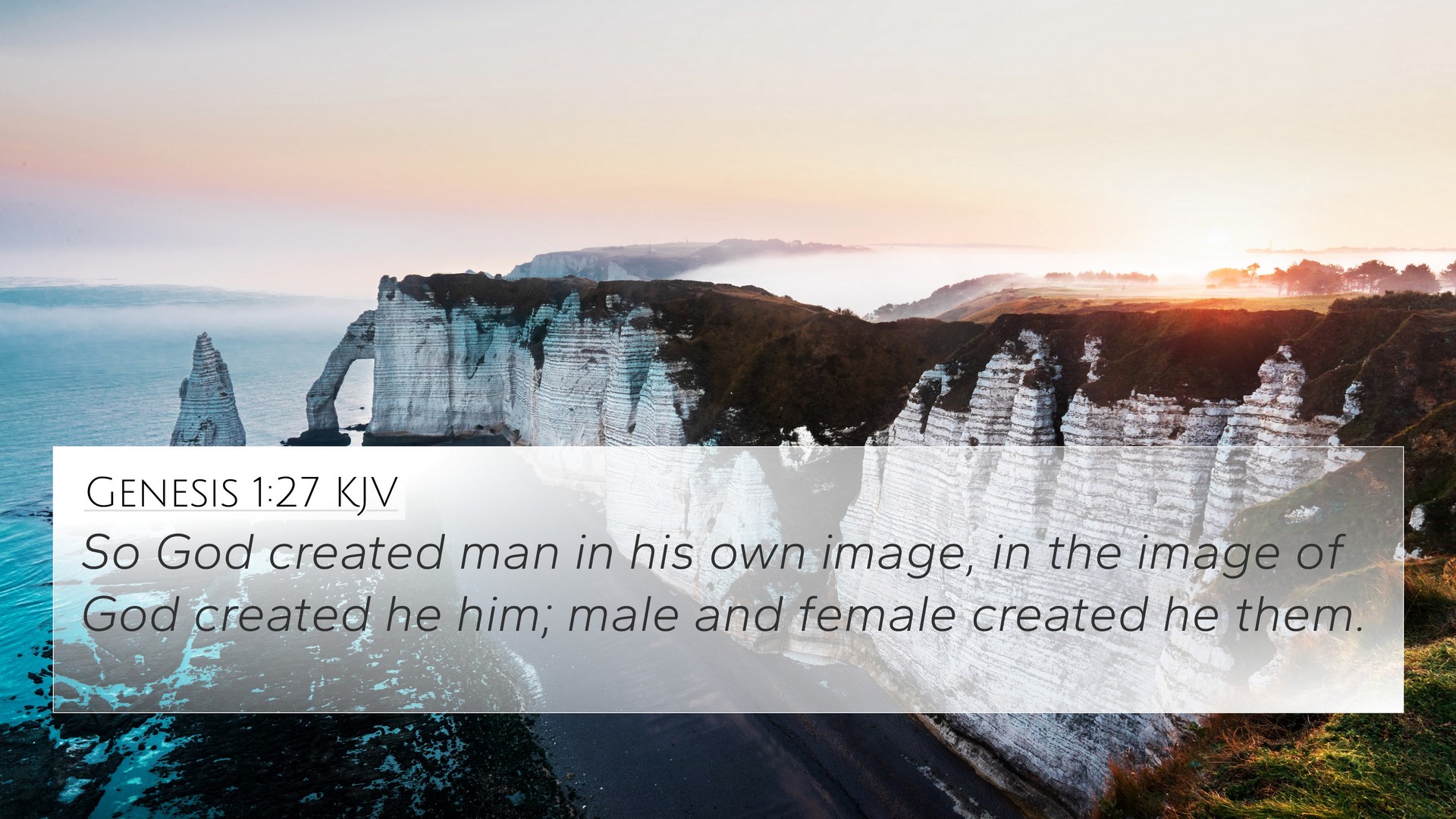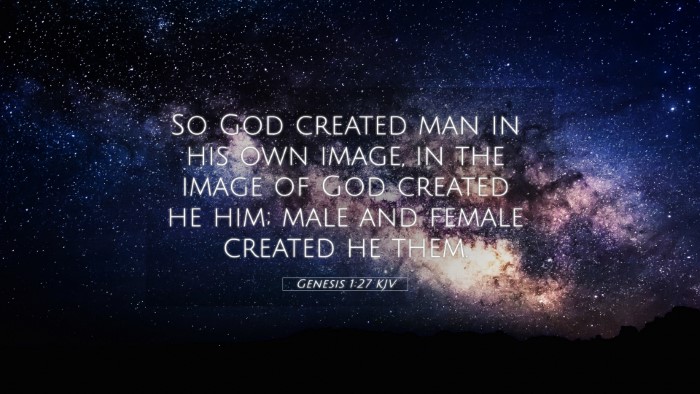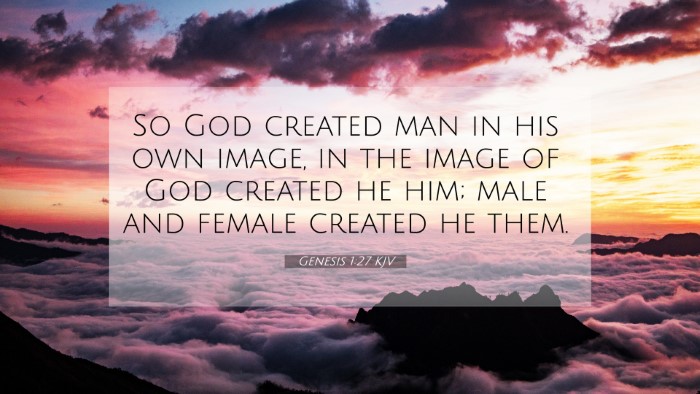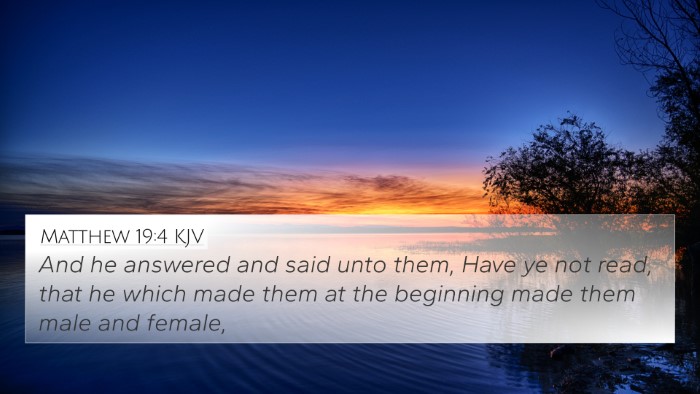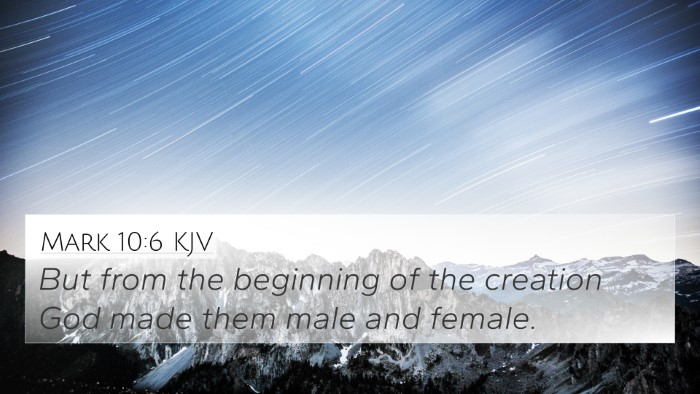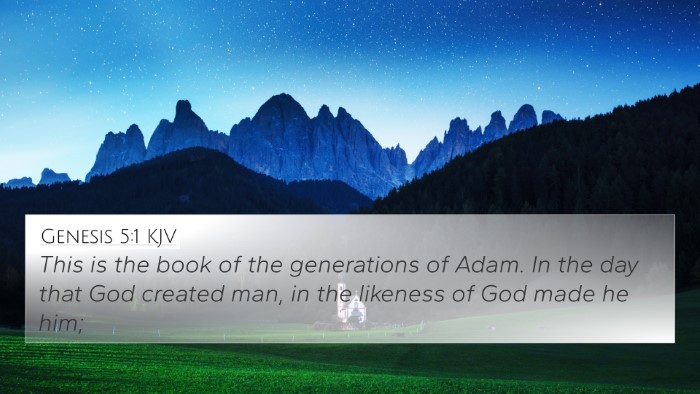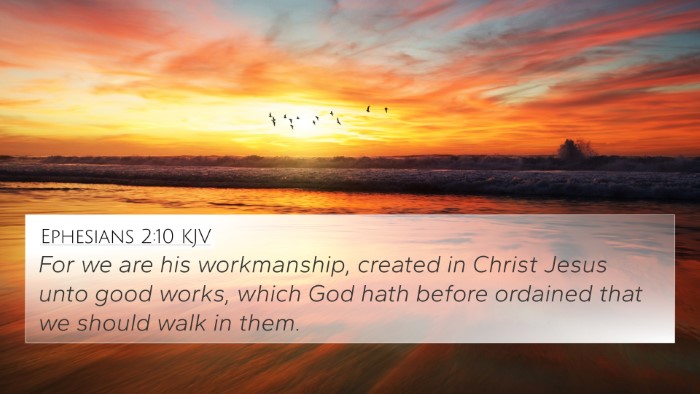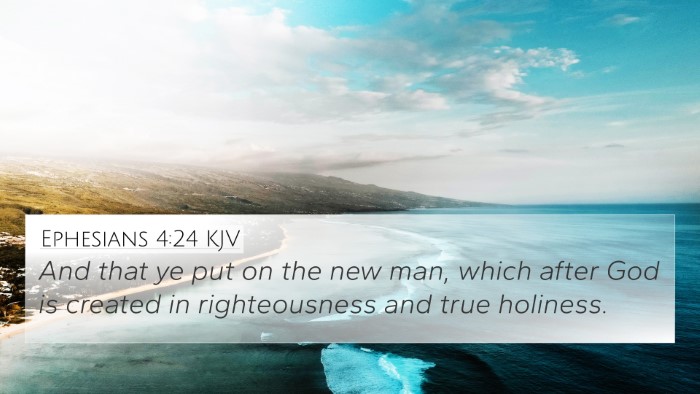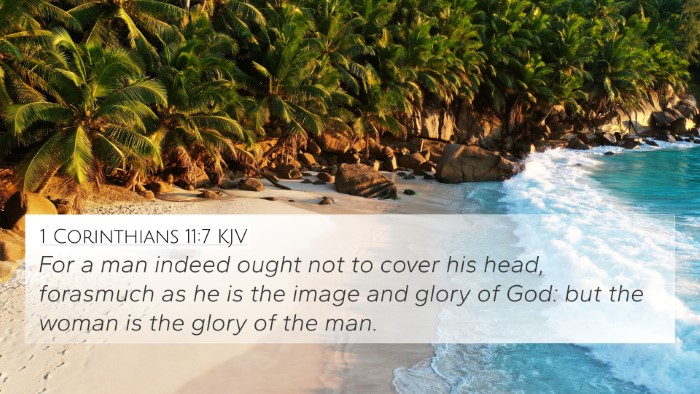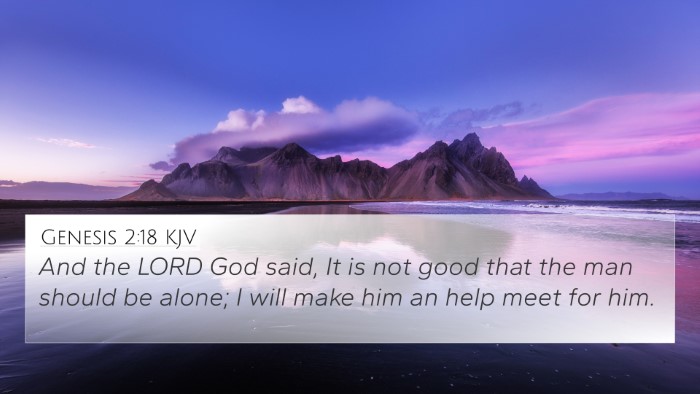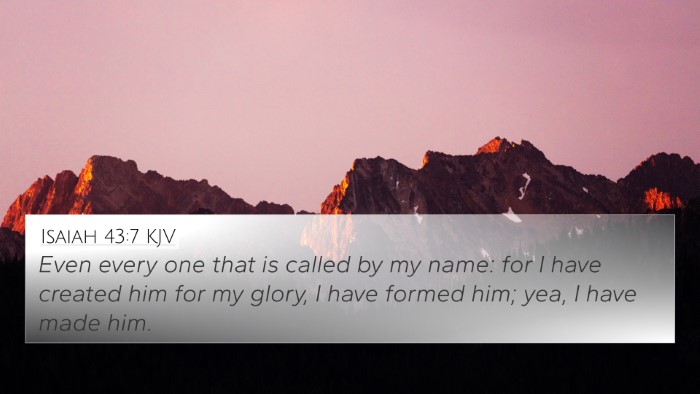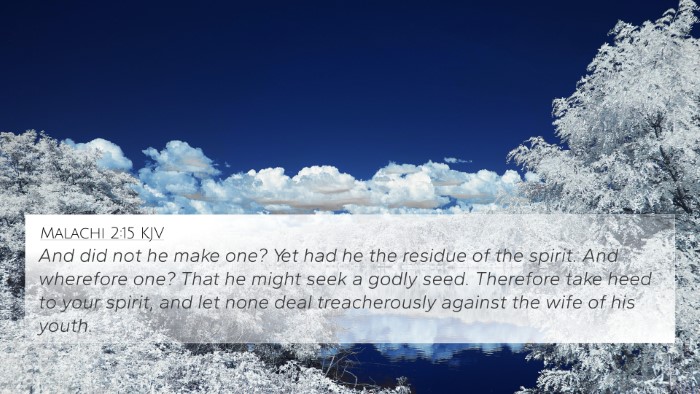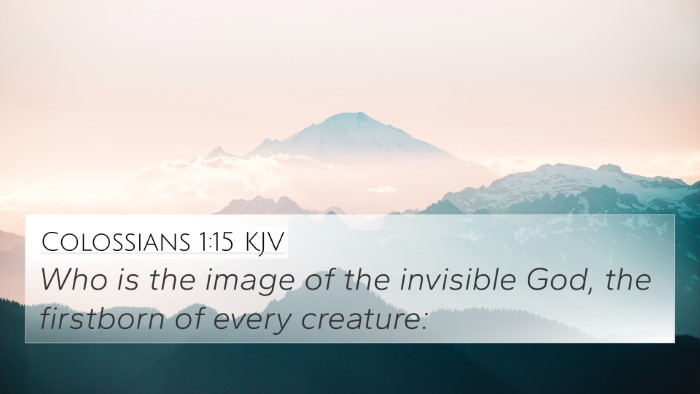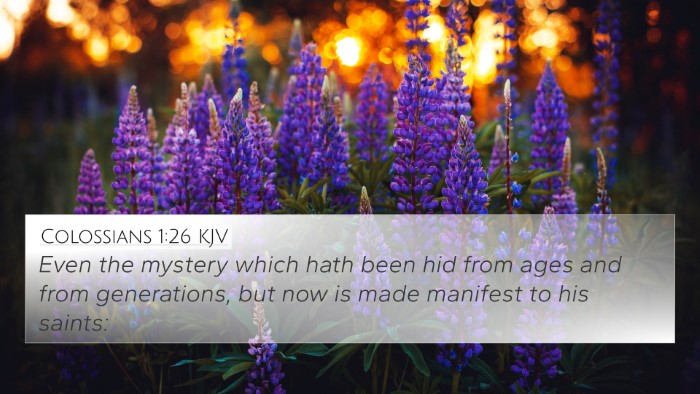Understanding Genesis 1:27
Genesis 1:27 states, "So God created mankind in his own image, in the image of God he created them; male and female he created them." This verse is foundational in understanding the nature of humanity and its relationship with God.
Key Insights from Public Domain Commentaries
In analyzing this verse, several themes emerge from public domain commentaries such as those by Matthew Henry, Albert Barnes, and Adam Clarke:
-
The Nature of Creation: This verse highlights that humanity is a deliberate creation of God, made in His likeness. This means that humans reflect certain attributes of God, such as reason, morality, and the capacity for relationships.
-
Imago Dei (Image of God): The concept of being made in God's image (imago Dei) has profound implications for human dignity and worth. This idea establishes the intrinsic value of every individual, regardless of status, ethnicity, or gender.
-
Gender Distinction: The verse emphasizes that both male and female are created in God's image, underlining the equality and complementary nature of genders. This counters any notion of superiority of one gender over the other.
-
Divine Intent: According to commentators, the creation in God's image indicates that humans have a purpose. They are to represent God's character and govern creation according to His will.
-
God's Power and Sovereignty: The act of creation itself demonstrates God's sovereign authority and power. This asserts that all humans belong to Him and are accountable to His divine standards.
Bible Cross-References for Genesis 1:27
Genesis 1:27 can be cross-referenced with several other Bible verses which deepen the understanding of this verse's message. Below are notable references:
- Genesis 5:1-2: "When God created mankind, he made them in the likeness of God; he created them male and female and blessed them." This verse reiterates the theme of human creation in God's likeness.
- Genesis 9:6: "Whoever sheds human blood, by humans shall their blood be shed; for in the image of God has God made mankind." This verse emphasizes the sanctity of life, rooted in the divine image.
- Psalm 8:5: "You have made them a little lower than the angels and crowned them with glory and honor." This establishes the high honor given to humanity as bearers of God's image.
- Colossians 3:10: "And have put on the new self, which is being renewed in knowledge in the image of its Creator." This implies that believers are being restored to the image of God through Christ.
- James 3:9: "With the tongue we praise our Lord and Father, and with it we curse human beings, who have been made in God’s likeness." This highlights the significance of respecting all humans as made in God's image.
- Romans 5:12: "Therefore, just as sin entered the world through one man, and death through sin, and in this way death came to all people, because all sinned." This indicates the impact of sin on humanity, despite the original honor of being made in God's image.
- 1 Corinthians 11:7: "A man ought not to cover his head, since he is the image and glory of God; but woman is the glory of man." This reinforces the distinction yet dignity of gender in the context of God's creation.
Thematic Connections Between Bible Verses
The inter-Biblical dialogue regarding the image of God reveals profound truths about humanity and its moral obligations. When examining these scriptures, we note the following themes:
-
Human Dignity: Genesis 1:27, along with Psalm 8:5 and James 3:9, stresses the inherent value of every person created in the image of God.
-
Gender Equality: Genesis 1:27 and 1 Corinthians 11:7 affirm that both male and female share equally in the divine image, promoting the idea that both genders are equally significant in God’s eyes.
-
Redemption and Restoration: Colossians 3:10 connects the creation theme with redemption, showing that through Christ, humanity can be renewed in the image of God, restoring what was lost through sin.
-
Accountability: Genesis 9:6 speaks to the moral responsibility that comes from being made in God’s image, which informs our ethical conduct towards one another.
Using Bible Cross-References
Understanding the connections between Bible verses deepens the study of Scripture. Here are some tools and methods for effective cross-referencing:
- Bible Concordance: This resource provides a comprehensive way to locate verses and see how they relate thematically.
- Bible Cross-reference Guide: Such guides offer insights into related verses for more in-depth study.
- Cross-reference Bible Study: Engage in methods such as thematic analysis or verse comparisons for deeper understanding.
Conclusion
Genesis 1:27 serves as a pivotal verse that establishes foundational truths about the nature of humanity, the divine image, and our responsibility. Utilizing cross-referenced verses enriches one's study of this profound truth and aids in a holistic understanding of biblical teachings on human dignity, gender equality, and the redemptive work of Christ.
